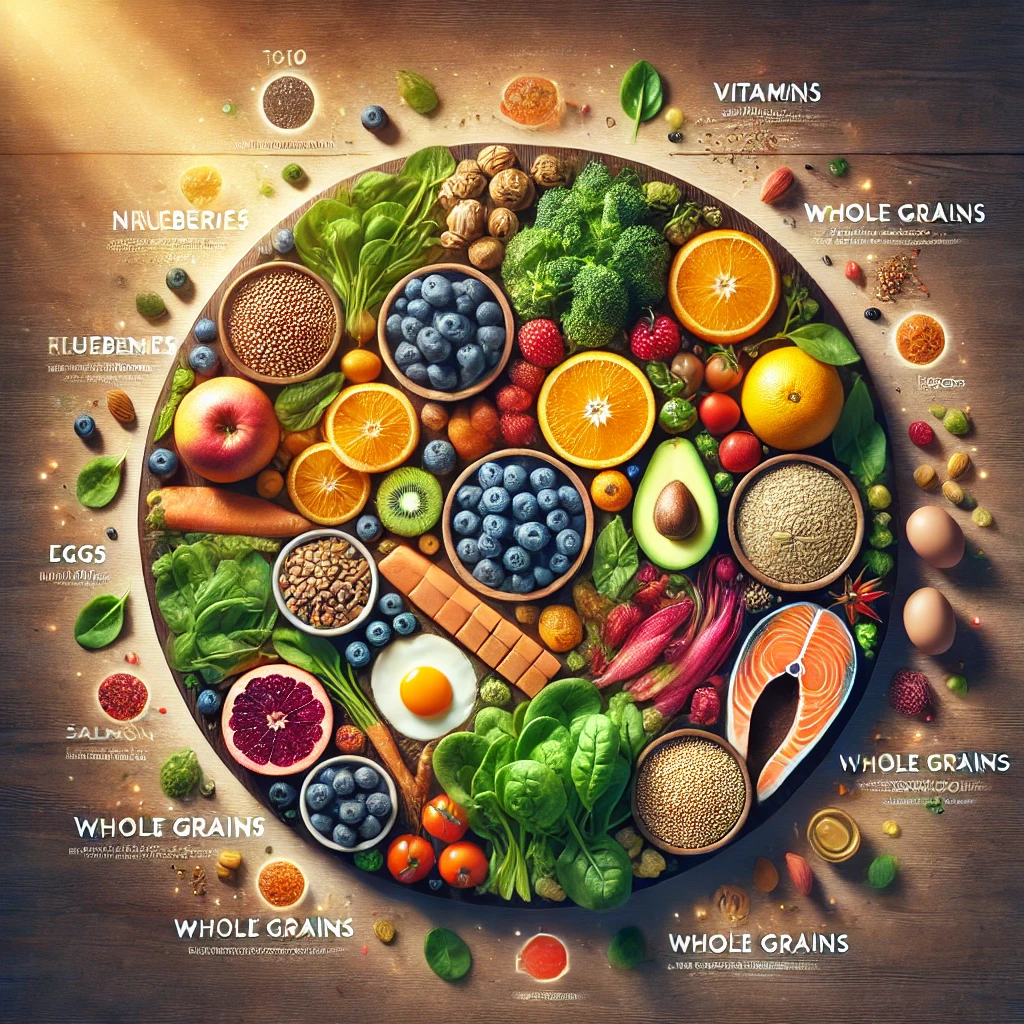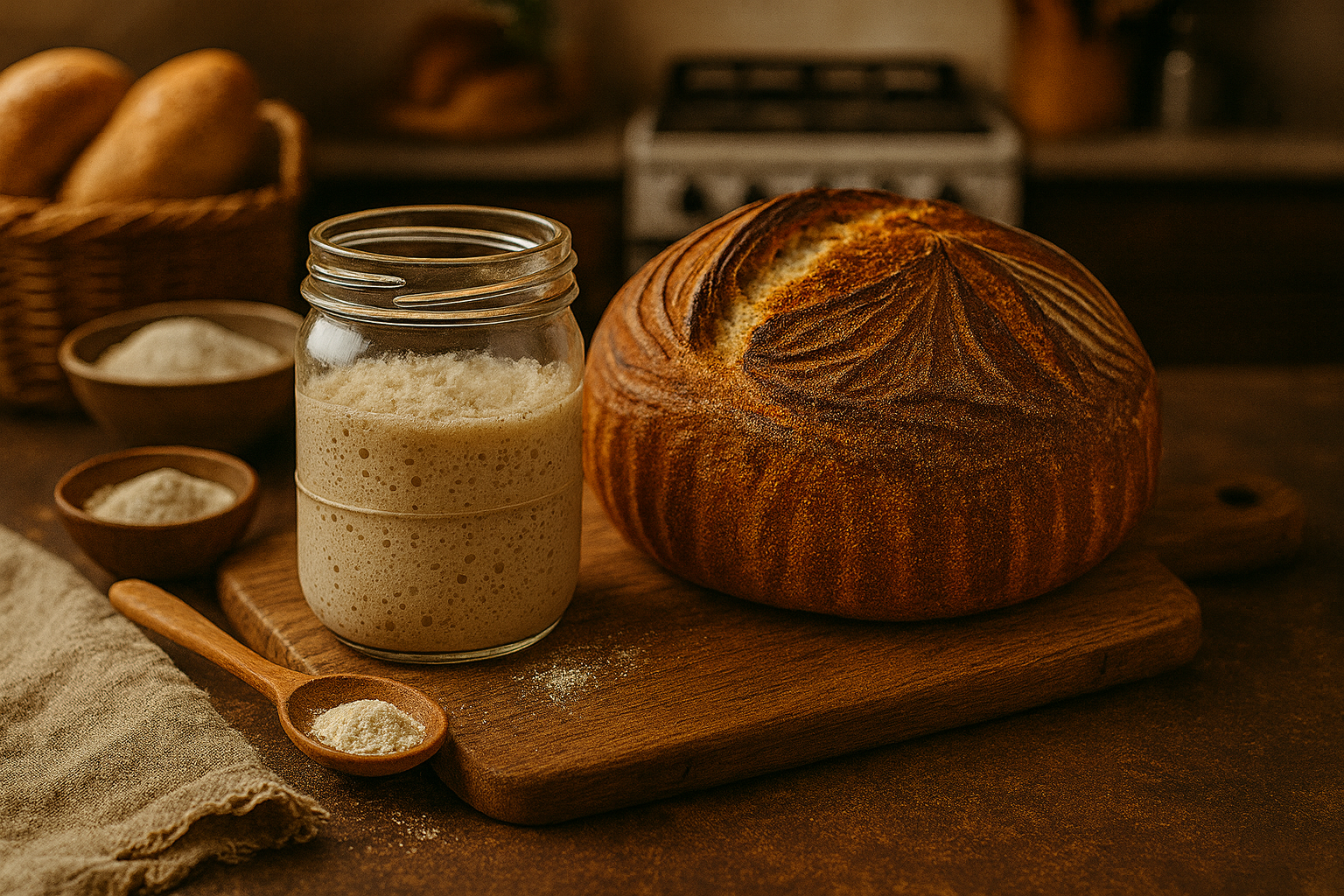Table of Contents
Introduction to Nutrient-Rich Foods
Nutrient-rich foods are defined by their ability to deliver a high concentration of vitamins, minerals, and other beneficial compounds relative to their calorie content. This concept, known as nutrient density, is crucial for understanding how to make healthier dietary choices. Foods that are considered nutrient-dense provide essential nutrients that support bodily functions while minimizing energy intake, which is vital for weight management and overall health.
Incorporating nutrient-rich foods into daily meals is essential for a balanced diet and can significantly contribute to long-term wellness. These foods include a variety of fruits, vegetables, whole grains, lean proteins, and healthy fats. By choosing these options over nutrient-poor foods, such as sugary snacks and heavily processed items, individuals can enhance their nutritional intake while also supporting weight control and disease prevention.
Research consistently supports the idea that diets rich in nutrient-dense foods can lead to improved health outcomes. Such foods are often rich in antioxidants, anti-inflammatory compounds, and dietary fibers that promote healthy digestion and cardiovascular health. For instance, leafy greens and vibrant fruits not only provide vital vitamins and minerals but also help to reduce the risk of chronic diseases, such as obesity, diabetes, and heart disease.
Furthermore, the incorporation of nutrient-rich foods can improve mental well-being. Nutritional compounds found in foods, such as omega-3 fatty acids from fish and anti-inflammatory phytochemicals from colorful fruits and vegetables, have been linked to cognitive health. Therefore, shifting to a diet characterized by high nutrient density is a practical approach that offers numerous advantages for physical and mental health.

The Top 10 Nutrient-Rich Foods
In modern nutrition, incorporating nutrient-rich foods into daily meals is paramount for optimal health. Below are ten foods recognized for their high nutrient density, along with their benefits.
1. Leafy Greens: Spinach, kale, and Swiss chard are examples of leafy greens filled with vitamins A, C, K, and several minerals, including iron and calcium. They are low in calories but high in fiber, supporting digestion and weight management.
2. Berries: Strawberries, blueberries, and raspberries are excellent sources of antioxidants, vitamins, and dietary fiber. Their high polyphenol content helps combat oxidative stress, making them beneficial for heart health and cognitive function.
3. Nuts: Almonds, walnuts, and pistachios offer healthy fats, protein, and essential nutrients like vitamin E and magnesium. Regular consumption of nuts is associated with improved heart health and reduced inflammation.
4. Seeds: Chia seeds, flaxseeds, and pumpkin seeds are nutrient powerhouses. Rich in omega-3 fatty acids, fiber, and various vitamins and minerals, these seeds support cardiovascular health and are great additions to smoothies and yogurts.
5. Whole Grains: Brown rice, quinoa, and whole wheat products provide significant amounts of fiber, B vitamins, and minerals such as iron and magnesium. Whole grains play a vital role in promoting digestive health and maintaining sustained energy levels.
6. Fatty Fish: Salmon, mackerel, and sardines are high in omega-3 fatty acids and vitamin D. Regular consumption of fatty fish is linked to reduced risk of heart disease and improved brain health.
7. Legumes: Lentils, chickpeas, and black beans are excellent sources of plant-based protein, fiber, and critical micronutrients. Incorporating legumes into meals can enhance satiety and support weight management.
8. Tubers: Sweet potatoes and beets are nutrient-dense carbohydrates, high in vitamin A and antioxidants. These foods are versatile and support healthy vision and immune function.
9. Greek Yogurt: Packed with probiotics, protein, and calcium, Greek yogurt supports gut health and muscle recovery. It can be enjoyed as a snack or used as a base for smoothies and sauces.
10. Cruciferous Vegetables: Broccoli, cauliflower, and Brussels sprouts are rich in fiber, antioxidants, and essential vitamins. These vegetables have been studied for their potential cancer-fighting properties, making them a valuable addition to any diet.
Integrating these top ten nutrient-rich foods into everyday meals can significantly enhance overall health and well-being, providing valuable nutrients that support various body functions.
Creative Ways to Incorporate Nutrient-Rich Foods Into Your Meals
Integrating nutrient-rich foods into your daily meals can be an enjoyable and straightforward process. The goal is to enhance your diet and ensure that you receive the necessary vitamins and minerals without drastically changing your eating habits. Here are some practical strategies to seamlessly include these top nutrient-rich foods into various meals throughout your day.
Starting the day with a wholesome breakfast can set a positive tone for the rest of your meals. Consider mixing spinach or kale into a morning smoothie along with some fruits like banana or berries. This not only provides a burst of essential nutrients but also offers a refreshing taste. Another option is to create an overnight oats recipe incorporating chia seeds, slivers of almonds, and yogurt for an added protein punch.
For lunch, salads can be an excellent vehicle for nutrient-rich foods. Try a quinoa salad with assorted vegetables like bell peppers, cucumbers, and cherry tomatoes, topped with grilled chicken or chickpeas. This dish can easily be prepared in advance and enjoyed throughout the week. Alternatively, wrap some hummus and sliced veggies in a whole grain wrap for a satisfying and nutritious snack that can be consumed on the go.
Dinner can also showcase these foods through creative recipes. Incorporating lentils into soups or stews not only enhances their nutritional profile but also adds hearty texture. Consider preparing a stir-fry with nutrient-rich broccoli and bell peppers, accompanied by brown rice or whole grains. Furthermore, desserts can also be made healthier by choosing dark chocolate, which is rich in antioxidants, or by making banana muffins that incorporate oats.
Throughout the day, small snack choices can also add essential nutrients. Snack on a handful of nuts for healthy fats and protein or yogurt topped with fresh fruit for a simple yet nutritious option. By varying these strategies, you can effectively boost your overall nutrient intake without feeling overwhelmed by the need to overhaul your entire diet.
Conclusion: Embracing a Nutrient-Dense Lifestyle
Incorporating nutrient-rich foods into your daily meals is a crucial step towards achieving a healthier lifestyle. As we explored in this post, the benefits of consuming various food items high in essential vitamins and minerals are profound. These foods not only support physical health but also contribute to mental well-being, energy levels, and overall quality of life. From leafy greens and vibrant fruits to whole grains and lean proteins, each category plays a vital role in ensuring our bodies receive the nutrients they need to function optimally.
Embracing a nutrient-dense lifestyle means prioritizing foods that offer the highest health benefits per calorie. This involves being mindful of food choices and gradually making modifications to your diet. It may seem overwhelming at first, but starting small can lead to sustainable changes over time. For example, you might begin by incorporating a serving of vegetables into each meal or opting for whole grain alternatives instead of refined grains. These incremental adjustments can result in substantial long-term health improvements.
Moreover, the long-term benefits of a nutrient-rich diet cannot be overstated. It has been linked to a reduced risk of chronic diseases, improved immune function, and enhanced mental clarity. By consistently including a variety of nutrient-packed foods in your diet, you pave the way toward prolonged health and vitality.
We encourage you to share your own experiences with nutrient-rich foods and your favorite ways to include them in your meals. By exchanging ideas and recipes, we can all support one another in making healthier choices. Let us commit to embracing a nutrient-dense lifestyle together, one meal at a time!






